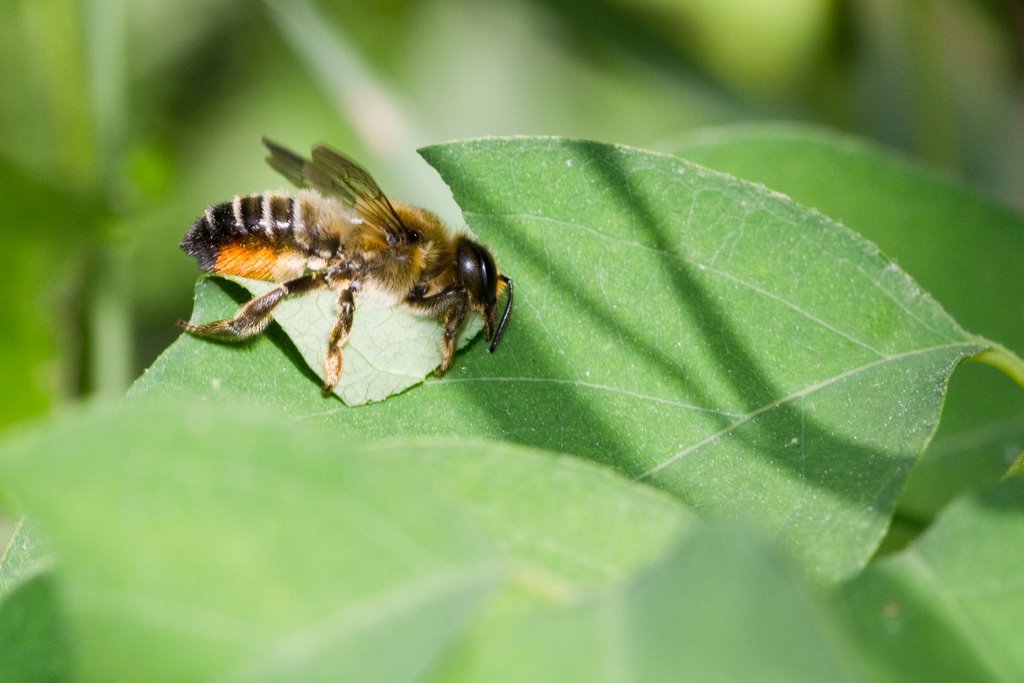Have you ever noticed some cuttings made in the leaves on your bushes and shrubs in the form of a perfect semi-circle? If you have noticed these odd-looking cuttings, then your garden may have been visited by leaf cutter bees.
Information About Leaf Cutter Bees
Because of their habits of cutting up eaves, many gardeners consider the leaf cutter bee to be a pest. Not everyone is too happy about the leaves of their rose bushes or shrubs being cut and harvested. This guide on beelife will tell you all you need to know about these amazing creatures.
But leaf cutter bees don't eat the foliage like other types of pests will. They use these special cuttings when they build nests for their offspring. Each cutting will be formed into a cell in their nest and house a young leaf cutter bee until it merges as a larva. These cunning craftsmen will then add a lunch of nectar and honey to their carefully constructed nursery chamber.
Each nest cell they build looks a little like the end of the cigar. Unlike other types of bees, leaf cutters are not a social lot. For this reason, the female leaf cutter bee is left to handle all the work of preparing the nursery and ensuring the young survive. They are not aggressive either and will rarely sting unless they feel especially threatened like if they are being handled. Even then, the sting of a leaf cutter is fairly mild and not as painful as what you can expect from the honey bee or wasp.
Even though they are considered pests by some people, it is important to note that they are also very important to the pollination process. Dousing your garden in insecticides is a bad idea as it will kill many valuable insects that are important to the ecosystem and is not especially effective against the leaf cutter bee because the bee uses the leaves to build a nursery, not for eating.
I suggest welcoming the leaf cutter to your garden and permitting them to cut a few leaves here and there in exchange for their valuable pollination benefits. Leaf cutters are already threatened by a large quantity of other natural competitors and parasites. The more we can do to help their numbers increase the better we will all be when enjoying their important role in the pollination process.
